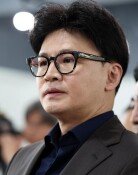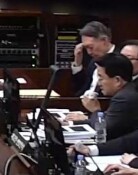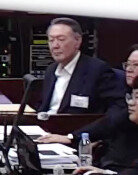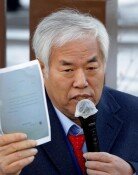Stock market refutes government¡¯s optimism
Stock market refutes government¡¯s optimism
Posted February. 01, 2001 11:19,
The government¡¯s rosy prospect that the economy will hit bottom during the first quarter of the year has been criticized by securities firms both at home and abroad as stemming from an overly optimistic view. In their respective press releases, securities firms such as Morgan Stanley Dean Witter & Co. (MSDW) and LG Investment and Securities Co. claimed that the economy would be able to approach bottom during the second half at the earliest in light of the present current for stagnation.
Government¡¯s dubious prediction:
Economic bureaucrats, including Deputy Prime Minister-Finance and Economy Minister Jin Nyum, have come up with an optimistic view since the start of the year that the economy will reach bottom during the first half and will be able to rise in full swing beginning the second half. They cited as grounds for such a view the tangible results of restructuring, revival of money market, the government¡¯s will to boost economy and the possibility for the U.S. economy¡¯s soft landing.
But most economic research institutes, including the Korea Development Institute (KDI), have maintained that it is premature to talk about the timing for the bottoming of the economy. They claim that the economy is rather on a continuous downward trend as seen in the increase rate of the industrial production in December that posted 4.7 percent, the lowest level in two years.
Stock market experts have a similar view. MSDW said in its report dated Jan. 30 that ¡°the production and exports of the Korean enterprises are expected to rapidly decrease due to the reduction in the demand worldwide and the U.S. stagnation.¡±
The Korean economy will become continuously dull until the end of the year, it said, observing that the production of not only semiconductors but also capital goods would decrease and that of textiles and automobiles would be curtailed gradually.
LG Investment and Securities Co. also said that the increase rate of the inventories reached 16.9 percent in December and that corporate production activities would be discouraged due to the burden from overstock.
In a report, the securities firm observed that the economy would reach bottom after September when the lowering of interests in the United States and in Korea is expected to take effect. ¡°Even the exports that have supported the economy by themselves are likely to suffer a blow due to the U.S. stagnation,¡± senior researcher Hwang In-Sung of Samsung Economic Research Institute said. ¡°It is dangerous to insist overly on the timing for the bottoming of the economy when both the current economic index and leading index do not confirm the bottom point.
Delay in restructuring and artificial pump-priming measures block economic recovery:
Economic experts worry that the government¡¯s artificial pump-priming measures might delay the restructuring programs. Dominant is the opinion in the stock market that the government is confusing the market, only aiming at a momentary sparkling effect. They contend that the government¡¯s bureaucrats are giving lip service.
¡°Although the government is employing a pump-priming measure in such a form of lowering the overnight call rates, it is difficult to expect an effect because there is little possibility for the spreads between long-term and short-term interests to be narrowed in light of the latest money market conditions,¡± Shin Hu-Shik, head of economic investigation team of Daewoo Securities Co., said. ¡°Any artificial measures to boost the economy will only make restructuring difficult and might result in distorting the market.¡±
Shim Sang-Dal, a senior researcher of KDI, said: ¡°We predicted the economy would turn for the better in the second half on the premise of thorough restructuring during the first half. But the fundamental problems have not be resolved yet due to the government¡¯s measures going against the restructuring such as the swift taking over of corporate bonds. So the current situation does not allow us to have an optimistic view of an economic recovery in the second half.¡±
Park Jeong-Hun sunshade@donga.com







